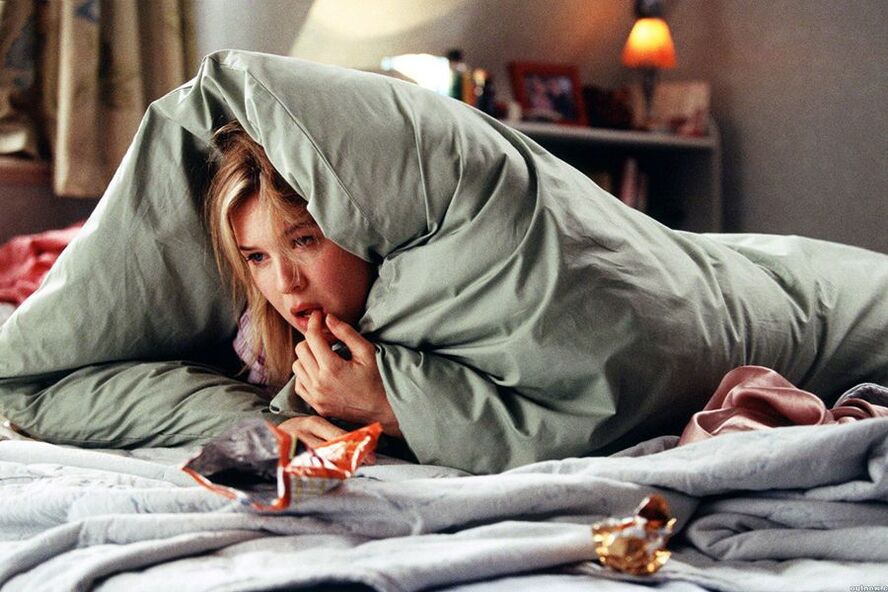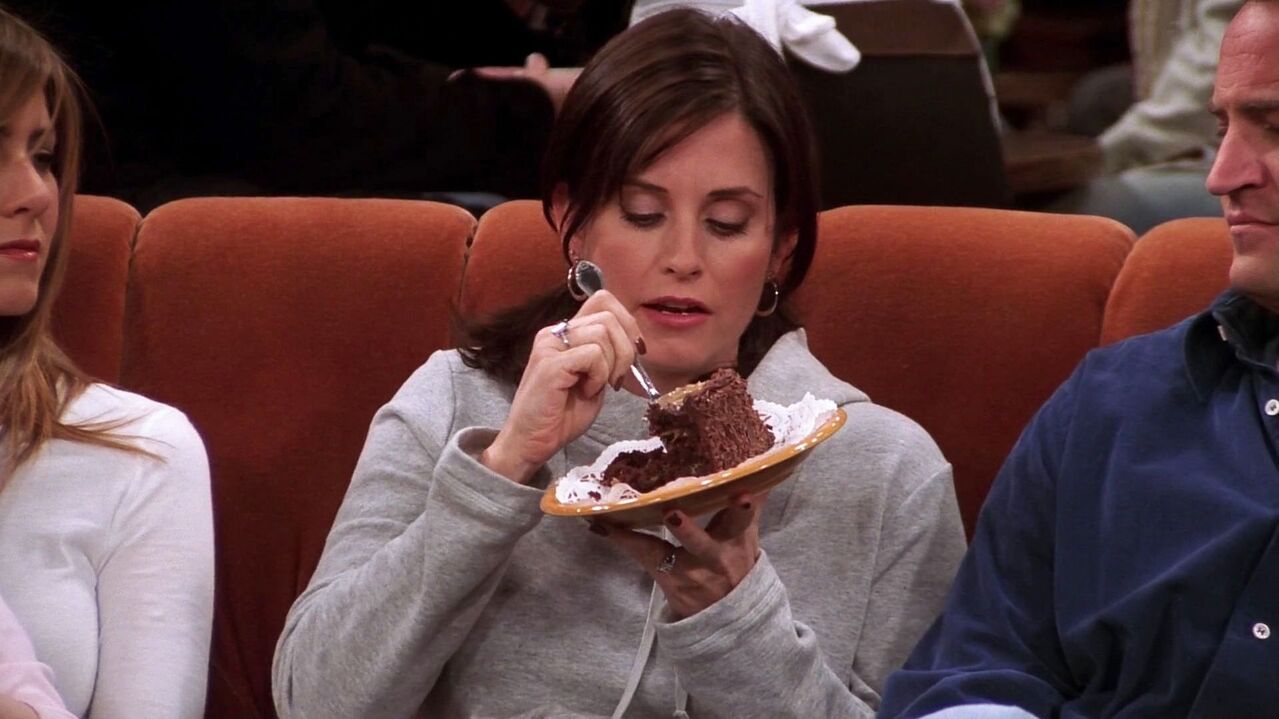
The title is a popular query on search engines. But this article will not offer tips such as "count to 10 and drink a glass of water. "Let's talk about something else: why force yourself not to lose weight is a bad idea and how to deal with your attitude towards food.
What's bad not to eat to lose weight?
Practicing psychologist: If you have a healthy attitude towards nutrition, then you are in contact with your body - hear its signals and know how to talk to it. If your body signals hunger, you will satisfy it; satiety you stop eating. The message "don't eat to lose weight" means stopping this contact, confronting yourself and being self-aggressive. It turns out that in order to achieve the goal (weight loss), you take action against yourself. It is not goodOdull and unhealthyOinside.
Psychiatrist: Most people who lose weight as a result of a restrictive diet regain it within 1-2 years. In addition, 2/3 of them gain more than they lose.
Endocrinologist:The message of forcing yourself not to eat to lose weight is irrational. It is important to understand: what happens to the body? Maybe it's not about malnutrition, it's about hormonal properties.
And what is it about - a healthy attitude towards food?
Psychiatrist: This is when regular meals and snacks are not accompanied by anxiety, shame and guilt. Lack of "prohibited foods", diets and calorie counting. And when you allow yourself to enjoy the food.
Endocrinologist:It is about treating food as a condition for a full, happy life. And not as a substitute for joy and pleasure.
Practicing psychologistA: This is when you eat from hunger, stop when you eat, do not focus on the shortcomings of the body, which must be "corrected" with food or giving up when you do not overeat, do not grab emotions.
Can you provide more details? How and why do we eat emotions?
Practicing psychologistA: The psyche does not have good and bad emotions, it can deal with anyone. She does not need food, alcohol, gadgets or a TV for this purpose. But there are situations when a person drowns his emotions with food. Upset eating a bowl of ice cream - became easier. His behavior received positive reinforcement, and the man began to resort to this strategy again and again.
Psychologist consultant:People often overeat because they lack rest. Let me give you an example. A young woman came up with a problem: she eats a lot in the evenings and can't refrain. It turned out that she works for three, because she can not refuse colleagues. No time to bite: all the time business. And in the evening she can't eat. Respectively, a person impoverishes himself, overworked, is constantly stressed. How to replenish lost energy? Burgers, potatoes, chocolate.
It turns out if a person eats when he is bored, upset, angry, tired or sad, is it wrong?
Psychologist consultant:This in itself is neither good nor bad: food is unknowingly about safety. For the newborn, food is not just food, but intimacy with the mother, reassurance, confidence, acceptance, love, communication. Adults also sometimes eat to soothe themselves. It's bad if it's the only way to deal with anxiety or fear.
Psychiatrist: With food we satisfy various psychological needs. For example, having dinner with family is intimacy. Going to a restaurant with friends eliminates the need for social interaction. The problem arises when food becomes the crutch of our negative experiences. This brings us to the topic of eating disorders (EID) or eating disorders. Psychiatry deals with these problems.
Wait, wait! It turns out if I eat a bar of chocolate after hours and feel guilty - is it already a disturbance? Do I have to go to a psychiatrist right away?

Practicing psychologist:A difficult question. There are situations when a person eats while running, chaotically, does not pay attention to what he eats. Or he eats when he's not really hungry - because of boredom or company. It can only be an eating disorder that can be prevented by a nutritionist. But at the same time, eating out of hunger is one of the symptoms of RIP. The line is very thin. And it can only be prescribed by a doctor. In our country, a psychiatrist does it.
Endocrinologist:It happens that a person is constantly sad, anxious, tired - and takes over these problems. Maybe it's the result of constant stress. But they are also symptoms of endogenous depression and anxiety neurosis. A psychiatrist is also involved in diagnosing such conditions.
But isn't ERP for bulimia and anorexia? The symptoms are difficult to confuse
Psychiatrist: It's not just bulimia and anorexia. Eating disorders also include psychogenic overeating (also called paroxysmal or compulsive), eating inedible food (Pick's disease) and loss of psychogenic appetite. These are disorders included in the International Classification of Diseases (ICD). However, there are disorders that are not included in this list, but also attract psychiatric attention: selective eating disorders, orthorexia (when the desire for a healthy lifestyle exceeds all limits) and pregorexia (the strictest restrictive diet for pregnant women).
Practicing psychologist: Psychology also distinguishes overeating syndrome (BOE): when a person eats almost nothing all day, can not sleep for a long time or often wakes up and wakes up to the refrigerator.
Is obesity also ERP?
Psychiatrist: Not always. There can be many reasons - genetics, sedentary lifestyle and hormonal disorders. It is not possible to equate obesity with RPP.
Practicing psychologist: Yes, I agree. There are people with absolutely healthy eating habits who are obese. And vice versa - for example, in patients with anorexia nervosa.
Have you heard that the problem of RPP is mainly women, teenagers and models? It's true?

Psychiatrist:Of course not. The disorder can develop at any age in both men and women. For example, selective eating disorders are most common in children - the child eats only certain foods.
Practicing psychologist: Anorexia and bulimia are more common in women. But forced overeating - equally for men and women. Therefore, it cannot be said that RPP is only a women's issue. And yes, teenagers, models, athletes engaged in aesthetic sports (rhythmic gymnastics, figure skating, sports dancing), TV presenters, bloggers, actresses - all who are in sight and whose work depends on their appearance are at risk. But the problem can take over anyone, even those who are far from writing a model business or writing a beauty blog.
It is believed that any nutritional problem is an attempt to attract attention. It is the truth?
Practicing psychologist: There is such a view, but it is not scientifically based. Yes, during treatment, RPP may have started when the person was not accepted by peers. For example, it is important for a girl between the ages of 13 and 15 to be looked at by boys and approved by friends, so she followed a strict diet. It also happens that food problems are a child's attempt to attract the attention of parents, often unknowingly. But these are quite special cases. It is wrong to think that the need for attention is the main cause of eating disorders.
So what's the reason?
Practicing psychologist: There are three groups of reasons: biological, psychological and social. Biological - such as a genetic predisposition to RPC - can unfortunately be inherited. Psychological - domestic violence, prohibition to express negative emotions, violation of the attachment of parents and children (for example, if the child has a cold, single parents). Social - the cult of beauty ideals, thinness, intimidation.
PsychiatristA: There are certain personality traits that may contribute to the development of EID, such as perfectionism or increased responsibility. It is also influenced by the peculiarities of eating behavior in the family, attitudes towards weight and figure. The child could be rewarded with candy for good behavior and education, and it stuck: because I'm good, I can pick up candy. Very good? I'll take ten.
Psychologist consultant:Many patients with ECD have experienced physical or sexual abuse. For many, food also helps to get secondary benefits from the situation. For example, one of my clients needed weight to protect themselves from men. During the therapy, we found out that the girl got into an unpleasant situation with an adult man at school age. The client was surprised that she remembered this: the story seemed "forgotten" but continued to influence the girl's adult behavior. They also revealed the belief that men only love slides. If so, the extra weight helped her "be safe, " that is, without men.
How common is eating disorders in society?

Psychiatrist: Global prevalence of RPC is estimated at about 9%. The prevalence is higher in risk groups. There are studies in adolescent girls that report that about 13% have symptoms of CRP before the age of 20. Anorexia is one of the deadly mental disorders, surpassing only chemical dependence.
Practicing psychologist: It is difficult to give exact figures, because people with PAD often do not understand that they need help. There are figures for the United States because it is a center for research and statistics on eating disorders: about 30 million people live with eating disorders. There are twice as many women as men (20 million versus 10 million). And every hour in the world, at least 1 person dies from the effects of RPE.
What are the symptoms of RPE? Can I diagnose it myself?
Psychiatrist: Generally speaking, the main symptoms are:
- A person vomits after eating or is otherwise compensated for, such as excessive physical activity (physical tyranny), laxatives and diuretics.
- Strong fixation to weight and figure (you can't add / lose a single gram or centimeter! ).
- Many attempts to reduce weight and weight swing.
- Many different diets (I eat only protein, only vegetables, only red).
- Constant thoughts, fears and guilt and shame about diet and weight. When thoughts and behaviors related to food cause a lot of suffering.
- Loss of control over the amount eaten.
But many can have these symptoms to varying degrees. Is there a more accurate diagnosis?
Endocrinologist:RPD is a systemic chronic disease. It causes changes in metabolism in systems and organs, changes in human neurohumoral regulation. It is a complex problem that can manifest itself in neuroses, organic brain abnormalities, organic damage and depressive disorders.
But first you need to determine the cause of the symptoms. For example, if a person runs to the refrigerator at night, glycogen levels should be checked to rule out insulin resistance and type 2 diabetes.
What if you realize you or your loved one has an RPP?
Practicing psychologist: If you have - consult a psychiatrist for a diagnosis. If you suspect RPP in your loved one, it's harder: he often refuses, does not want to admit that something is wrong with him. And unnecessary pressure can destroy trust. Let your loved one know that you are on his side, ready to help and support.
Who treats ECD? Just a psychiatrist?
Psychiatrist: No. The psychiatrist makes the diagnosis. And he heals depending on the disease psychiatrist, psychotherapist, clinical psychologist (as prescribed by a psychotherapist). Why is it so important to see a psychiatrist first? Because it can detect comorbidities such as depression or anxiety, which is found in about 80% of people with RPD. Treatment depends on the severity of the disease. It can be drug therapy in combination with psychotherapy (group, cognitive-behavioral, dialectical-behavioral). Family therapy is also recommended.
Psychologist consultant:Anorexia and bulimia are mainly treated by a psychiatrist. Emotional overeating - psychologist, consultant psychologist. Obesity - nutritionist-endocrinologist (hormones should be checked for metabolism) together with a psychologist or psychotherapists.














































































